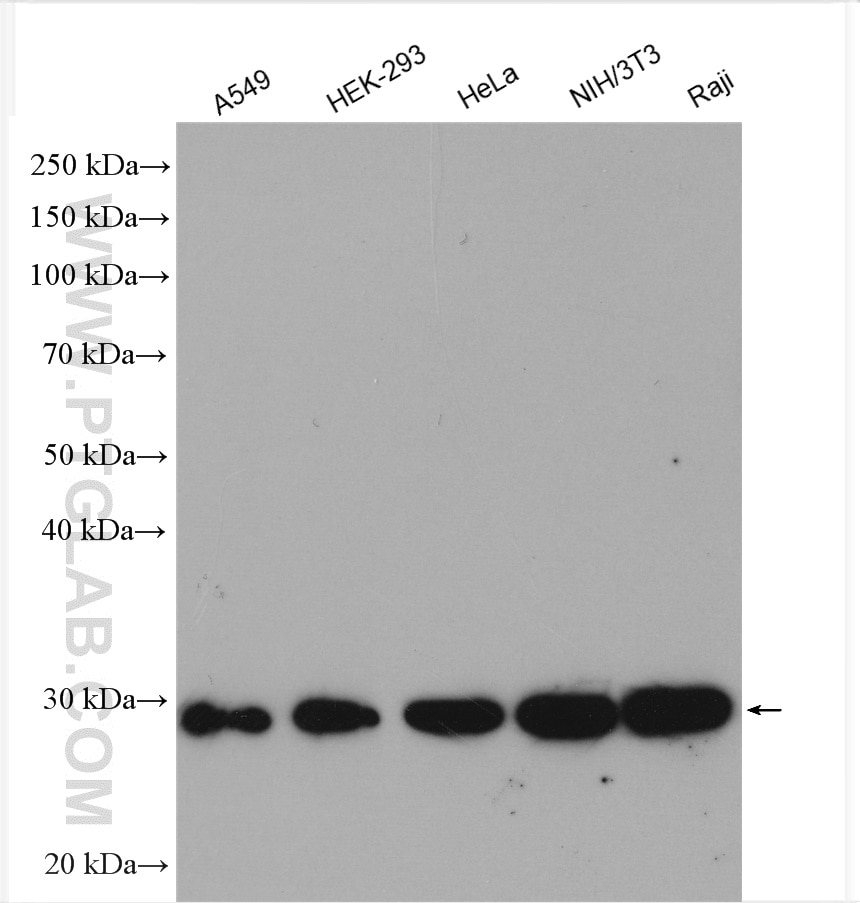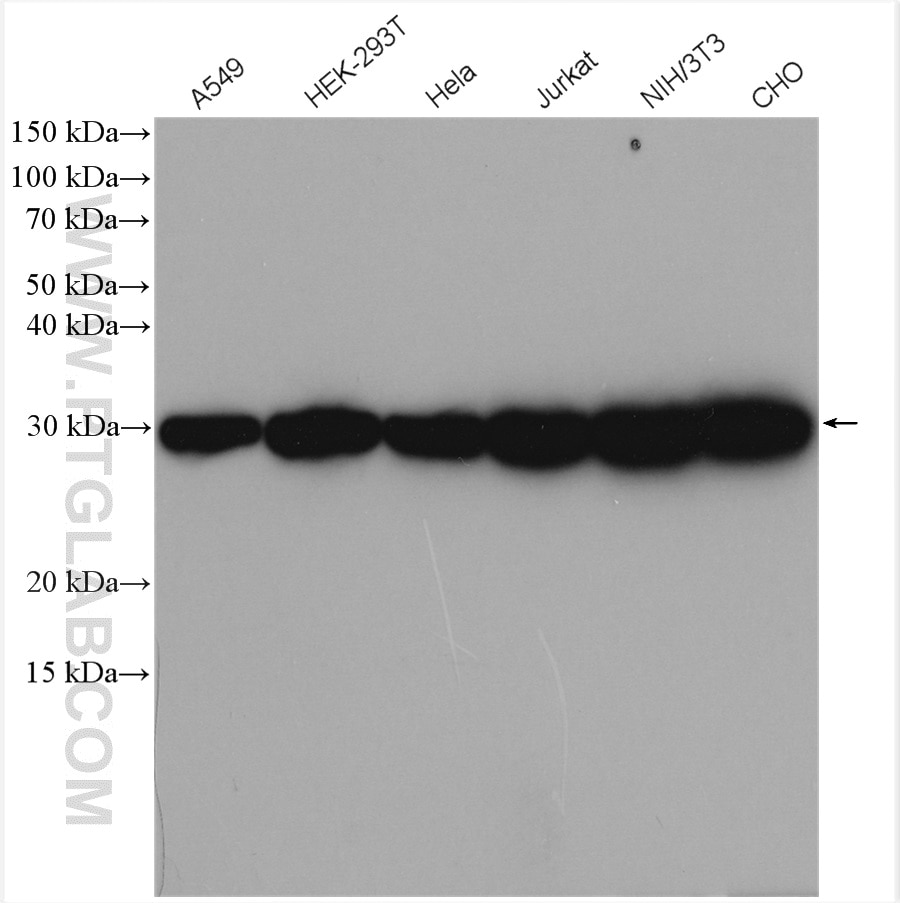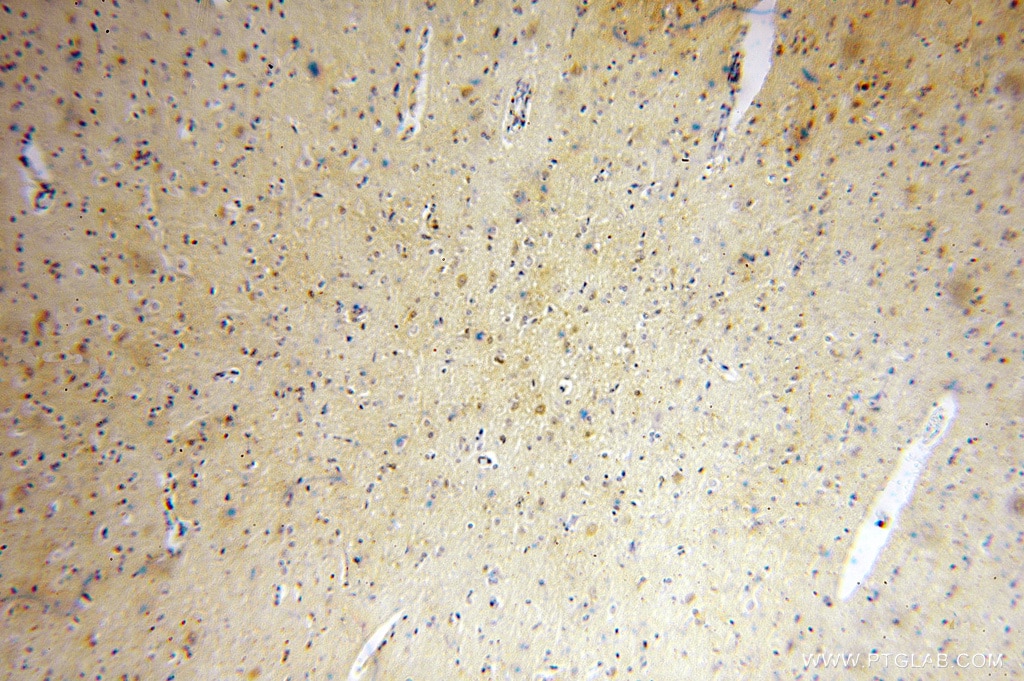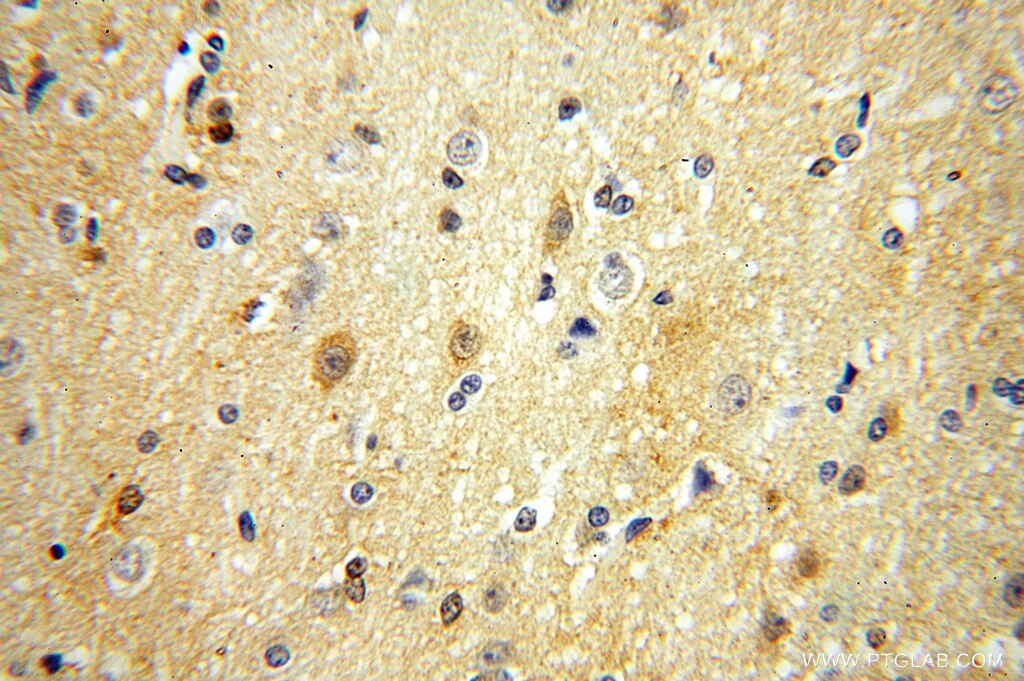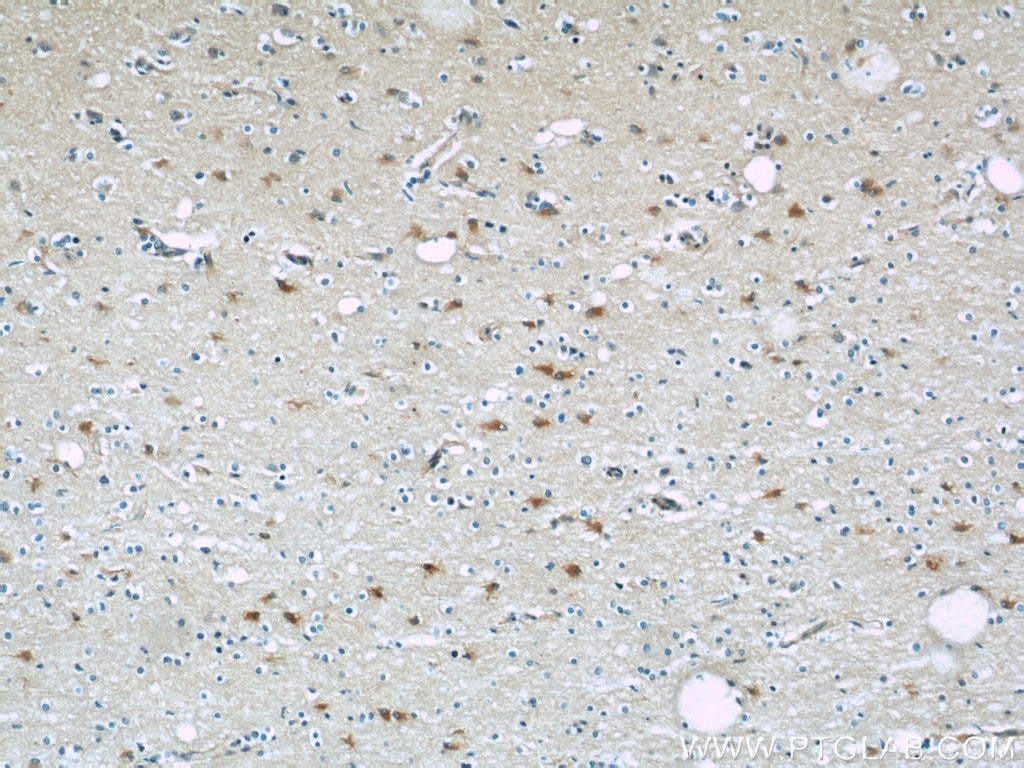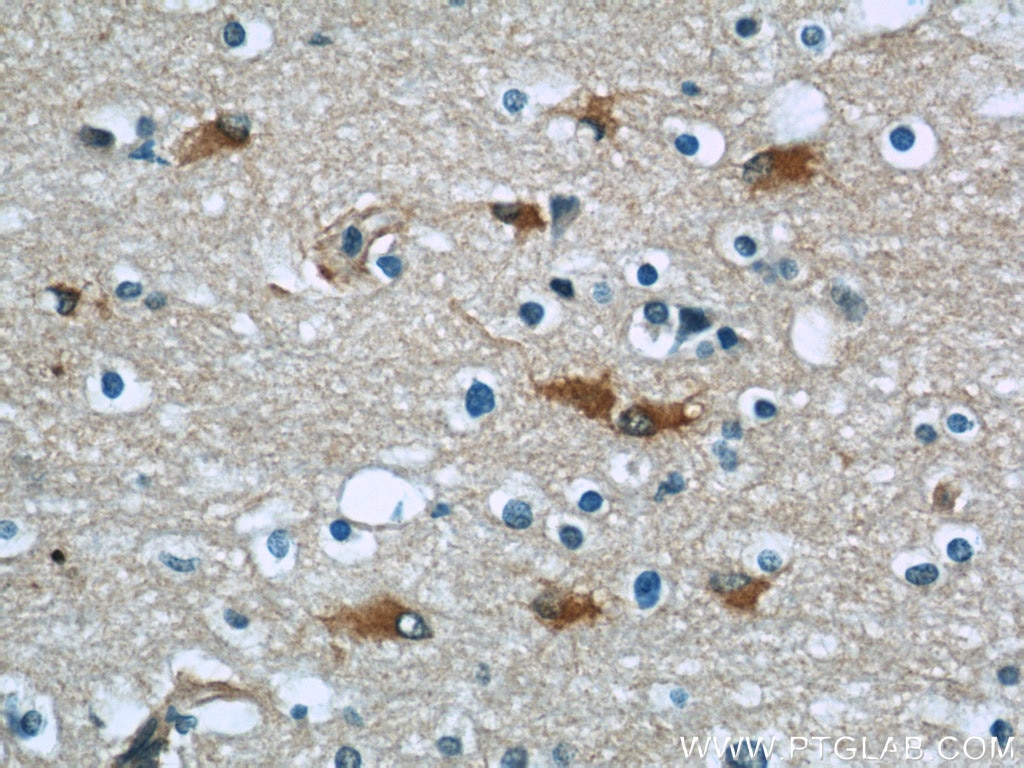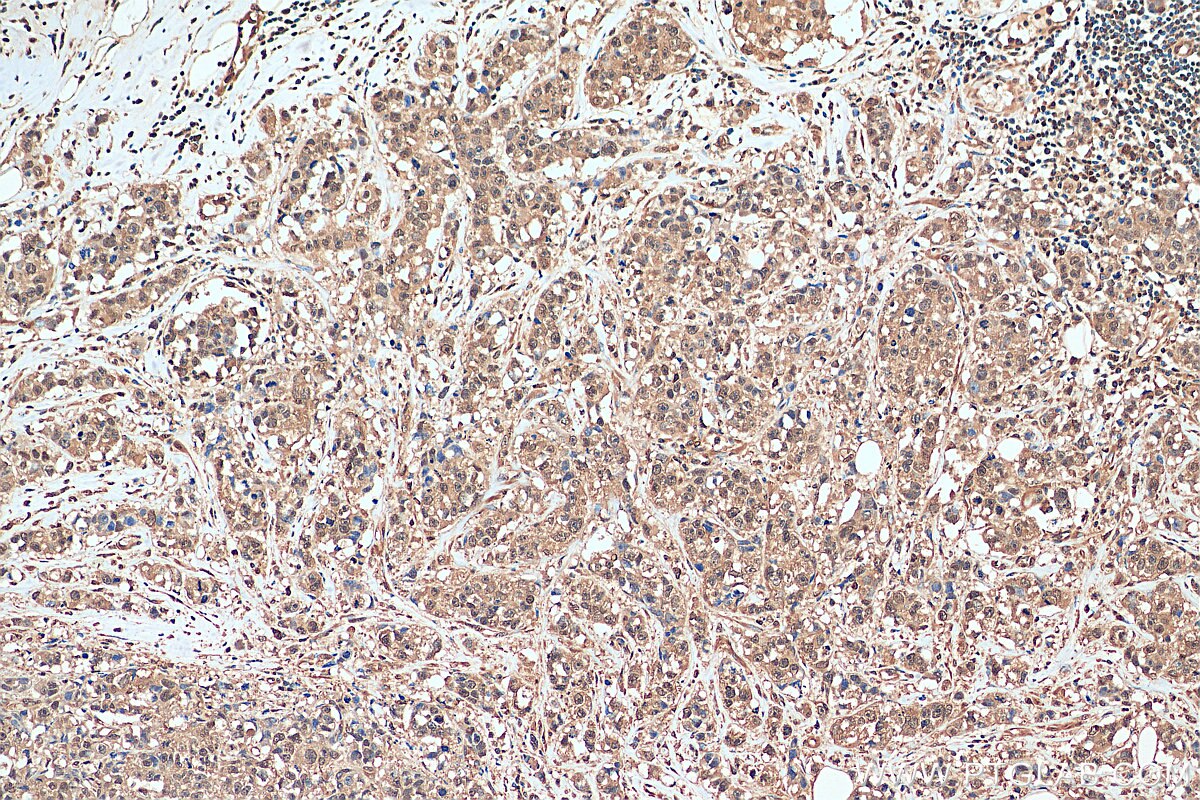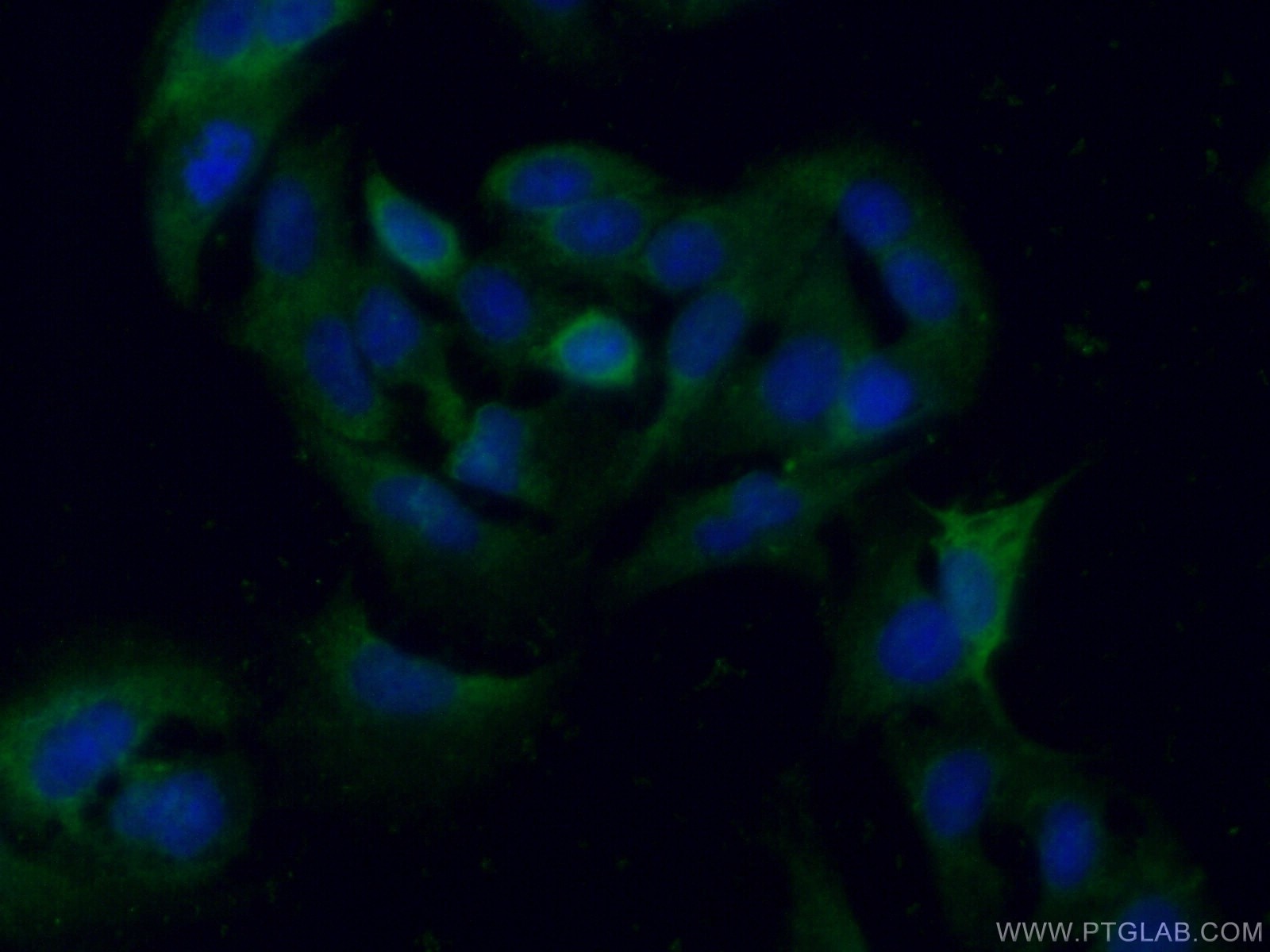- Phare
- Validé par KD/KO
Anticorps Polyclonal de lapin anti-PGAM1
PGAM1 Polyclonal Antibody for WB, IF, IHC, ELISA
Hôte / Isotype
Lapin / IgG
Réactivité testée
Humain, rat, souris
Applications
WB, IHC, IF/ICC, IP, CoIP, ELISA
Conjugaison
Non conjugué
N° de cat : 16126-1-AP
Synonymes
Galerie de données de validation
Applications testées
| Résultats positifs en WB | cellules A549, cellules CHO, cellules HEK-293, cellules HEK-293T, cellules HeLa, cellules Jurkat, cellules NIH/3T3, cellules Raji |
| Résultats positifs en IHC | tissu cérébral humain, tissu de cancer du sein humain il est suggéré de démasquer l'antigène avec un tampon de TE buffer pH 9.0; (*) À défaut, 'le démasquage de l'antigène peut être 'effectué avec un tampon citrate pH 6,0. |
| Résultats positifs en IF/ICC | cellules A549 |
Dilution recommandée
| Application | Dilution |
|---|---|
| Western Blot (WB) | WB : 1:2000-1:12000 |
| Immunohistochimie (IHC) | IHC : 1:20-1:200 |
| Immunofluorescence (IF)/ICC | IF/ICC : 1:20-1:200 |
| It is recommended that this reagent should be titrated in each testing system to obtain optimal results. | |
| Sample-dependent, check data in validation data gallery | |
Applications publiées
| KD/KO | See 4 publications below |
| WB | See 22 publications below |
| IHC | See 2 publications below |
| IF | See 3 publications below |
| IP | See 1 publications below |
| CoIP | See 1 publications below |
Informations sur le produit
16126-1-AP cible PGAM1 dans les applications de WB, IHC, IF/ICC, IP, CoIP, ELISA et montre une réactivité avec des échantillons Humain, rat, souris
| Réactivité | Humain, rat, souris |
| Réactivité citée | Humain, souris |
| Hôte / Isotype | Lapin / IgG |
| Clonalité | Polyclonal |
| Type | Anticorps |
| Immunogène | PGAM1 Protéine recombinante Ag9110 |
| Nom complet | phosphoglycerate mutase 1 (brain) |
| Masse moléculaire calculée | 254 aa, 29 kDa |
| Poids moléculaire observé | 29 kDa |
| Numéro d’acquisition GenBank | BC011678 |
| Symbole du gène | PGAM1 |
| Identification du gène (NCBI) | 5223 |
| Conjugaison | Non conjugué |
| Forme | Liquide |
| Méthode de purification | Purification par affinité contre l'antigène |
| Tampon de stockage | PBS avec azoture de sodium à 0,02 % et glycérol à 50 % pH 7,3 |
| Conditions de stockage | Stocker à -20°C. Stable pendant un an après l'expédition. L'aliquotage n'est pas nécessaire pour le stockage à -20oC Les 20ul contiennent 0,1% de BSA. |
Informations générales
PGAM1(phosphoglycerate mutase 1) is also named as PGAMA,PGAM-B and belongs to the phosphoglycerate mutase family. Phosphoglycerate mutase is widely distributed in mammalian tissues where it catalyzes the reversible reaction of 3-phosphoglycerate (3-PGA) to 2-phosphoglycerate (2-PGA) in the glycolytic pathway. The homodimer PGAM1 is expressed mainly in liver, kidney, brain and overexpressed in a variety of human cancers, including breast carcinoma, colorectal cancer, lung cancer, prostate cancer, oral squamous cell carcinoma, esophageal squamous cell carcinomas and also associated with certain virus infection. PGAM1 could be developed as a useful diagnostic biomarker, as well as a potential therapeutic target for hepatocellular carcinoma (PMID:20403181). This antibody may also recognize PGAM2 and PGAM4 due to the high homology.
Protocole
| Product Specific Protocols | |
|---|---|
| WB protocol for PGAM1 antibody 16126-1-AP | Download protocol |
| IHC protocol for PGAM1 antibody 16126-1-AP | Download protocol |
| IF protocol for PGAM1 antibody 16126-1-AP | Download protocol |
| Standard Protocols | |
|---|---|
| Click here to view our Standard Protocols |
Publications
| Species | Application | Title |
|---|---|---|
Mol Cell The long noncoding RNA glycoLINC assembles a lower glycolytic metabolon to promote glycolysis. | ||
Cell Res cMyc-mediated activation of serine biosynthesis pathway is critical for cancer progression under nutrient deprivation conditions. | ||
EMBO J Fatty acid synthesis is critical for stem cell pluripotency via promoting mitochondrial fission. | ||
EMBO Rep Histone acetyltransferase 1 is a succinyltransferase for histones and non-histones and promotes tumorigenesis.
| ||
Front Oncol A Schistosoma japonicum MicroRNA Exerts Antitumor Effects Through Inhibition of Both Cell Migration and Angiogenesis by Targeting PGAM1. |
Avis
The reviews below have been submitted by verified Proteintech customers who received an incentive forproviding their feedback.
FH Marco (Verified Customer) (07-04-2024) | It is a very well functioning antibody
|
